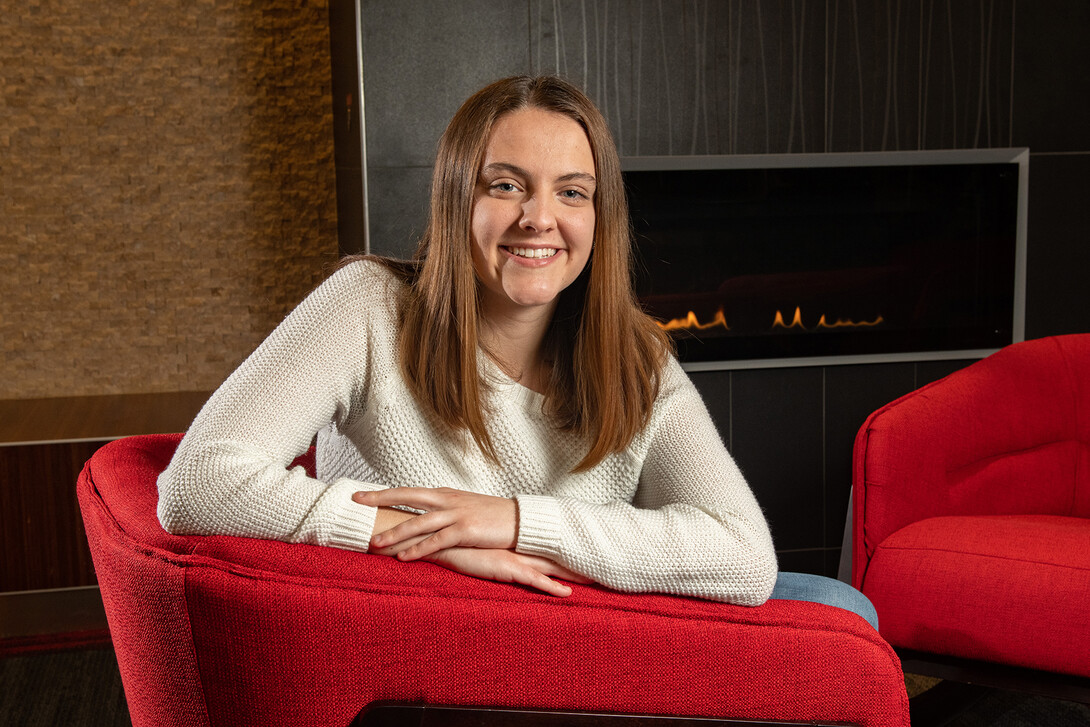
Growing up in New Mexico, Abby Seibel experienced harsh environmental changes within her community—drought, fire, water contamination.
She saw the impact it had on people, and her drive to effect positive change on the environment began.
“A lot of people had health issues—and there were fires and [other environmental events] that made me think, ‘Whatever I want to do with my life, I want to do it to help prevent things like that,’” Seibel said.
When Seibel was 16, her parents, who went to college in Nebraska, decided to move the family to Elkhorn, Nebraska. She entered the University of Nebraska-Lincoln as a first-year student in Fall 2019, majoring in computer engineering and combining her love of the environment with her interest in engineering.
As a member of the university’s first cohort of 10 STEM CONNECT Scholars, a grant funded by the National Science Foundation, Seibel will participate in a program that provides support to academically talented, low-income students with interest in careers that require strong skills in mathematics or computer science. Twenty more Scholars will join the program in Fall 2020.
In 2020, she will advance her pursuit of environmental research by participating in a study abroad in Reykjavik, Iceland, to conduct environmental energy and renewable resources research. Through this Gilman Scholarship, she hopes to start an updated database for a coordinate system of viable geothermal areas.
Seibel also took initiative to share her passion for computer science with the Lincoln community through the after-school program she taught at Mickle Middle School. Though she started coding in high school, Seibel understands how daunting it can be, and she strives to make the subject more approachable to middle school students.
“Coding is so different from everything else. And the way you have to think the first time you try it, you're almost guaranteed to do something awful and just not get it to work,” Seibel said. “I was always a straight-A student, so I was really terrified of failing. The first time I started coding and it wouldn't work, I’d think, ‘Oh no, I failed. But now, I think, ‘Oh no, that's just how it is.’ I really want to inspire people not to be afraid of failing in computer science because that's a big part of it.”
Like many of her computer science and engineering peers, it took Seibel time to get comfortable with making mistakes. In fact, Nebraska’s computer science department often discusses the invalidity of imposter syndrome, the feeling of not being good enough to be where you are, to help reinforce a sense of community and belonging among computer science students.
While Seibel admits to facing imposter syndrome among peers who have more experience coding than herself, as a young woman in STEM, her ability to prove and apply her knowledge has given her the confidence she needs to overcome such a mentality.
“I really like doing things that people tell me I can't do,” Seibel said. “I'll make it a point to do it, and I'll go out of my way just to prove it.”
About the Author: This feature on Abby Seibel was written by Gabrielle Cottraux, a sophomore majoring in English and advertising and public relations. This semester she is working in the CSMCE as our recruitment and social media strategist.
Read more about all 10 of the Spring 2020 STEM CONNECT Scholars







